Many who find themselves on the streets experience great isolation, and do not have access to people with the resources and committed presence to ensure their well-being. We recognize that it takes more than a product or charity to create transformation in the lives of individuals and communities impacted by poverty and trauma. That's why we focus on building relationships with partner organizations that have their boots on the ground, and we are listening to the voices and leadership provided by people who have lived experience. We visited Portland to include their voices in the solutions, from those with power and resources to those directly affected by the issues.
Some of us may have been led to think that homelessness is an effect of personal failures. But people working full-time in low-wage jobs in Portland are paying up to 80% of their salaries on rent alone.* In order to create change, we have to be willing to listen to those affected without judgment, and we are here to share our lessons learned.
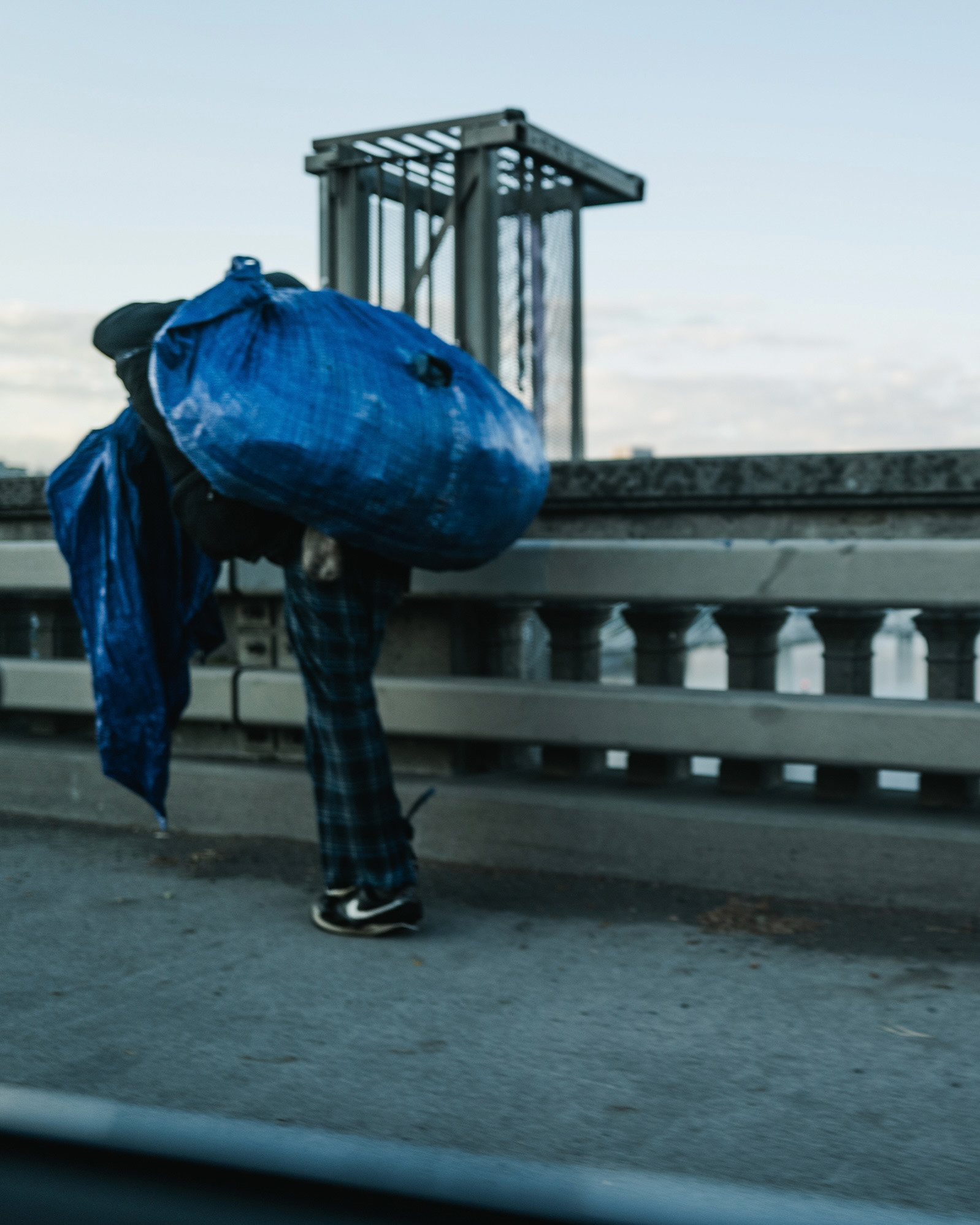
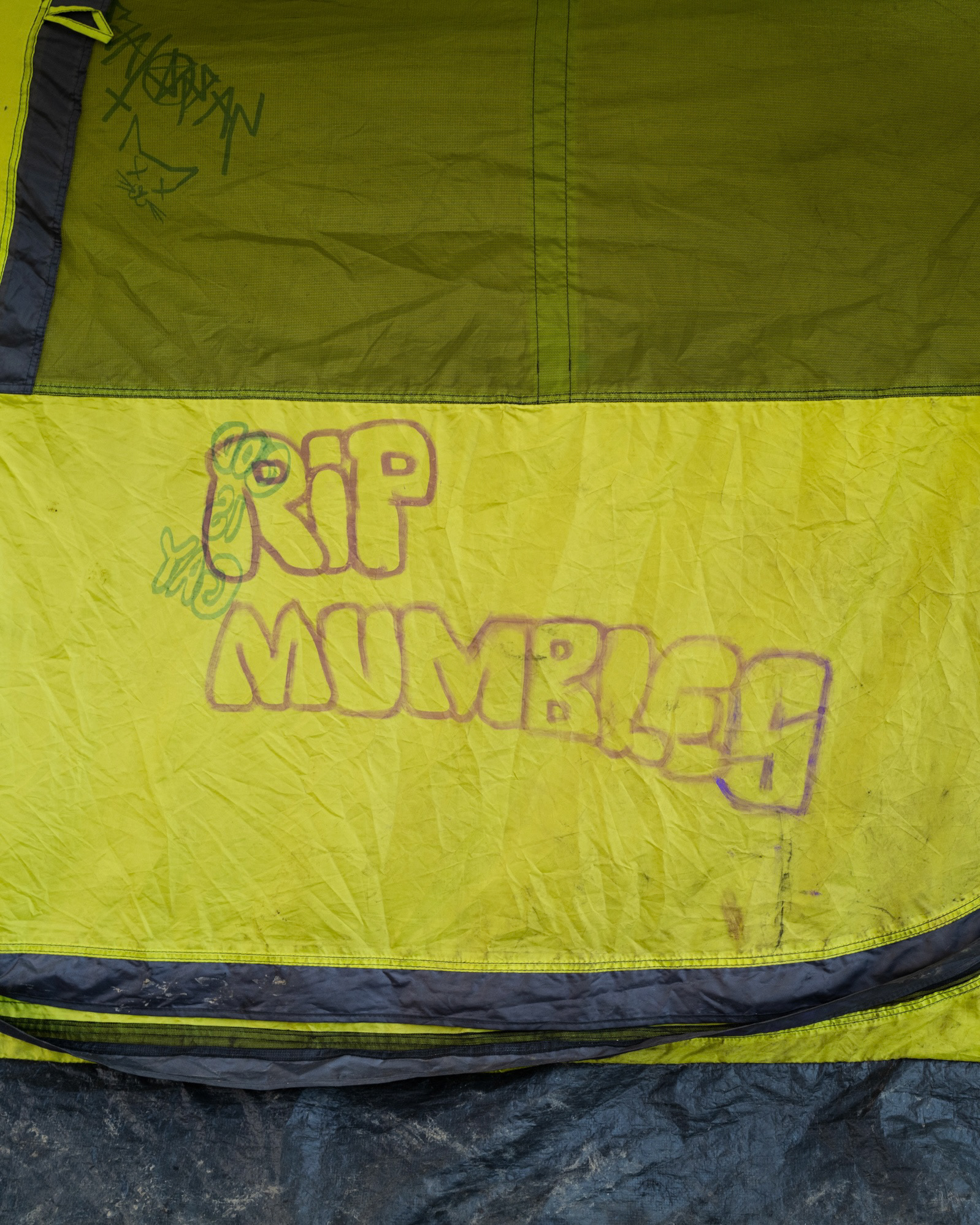
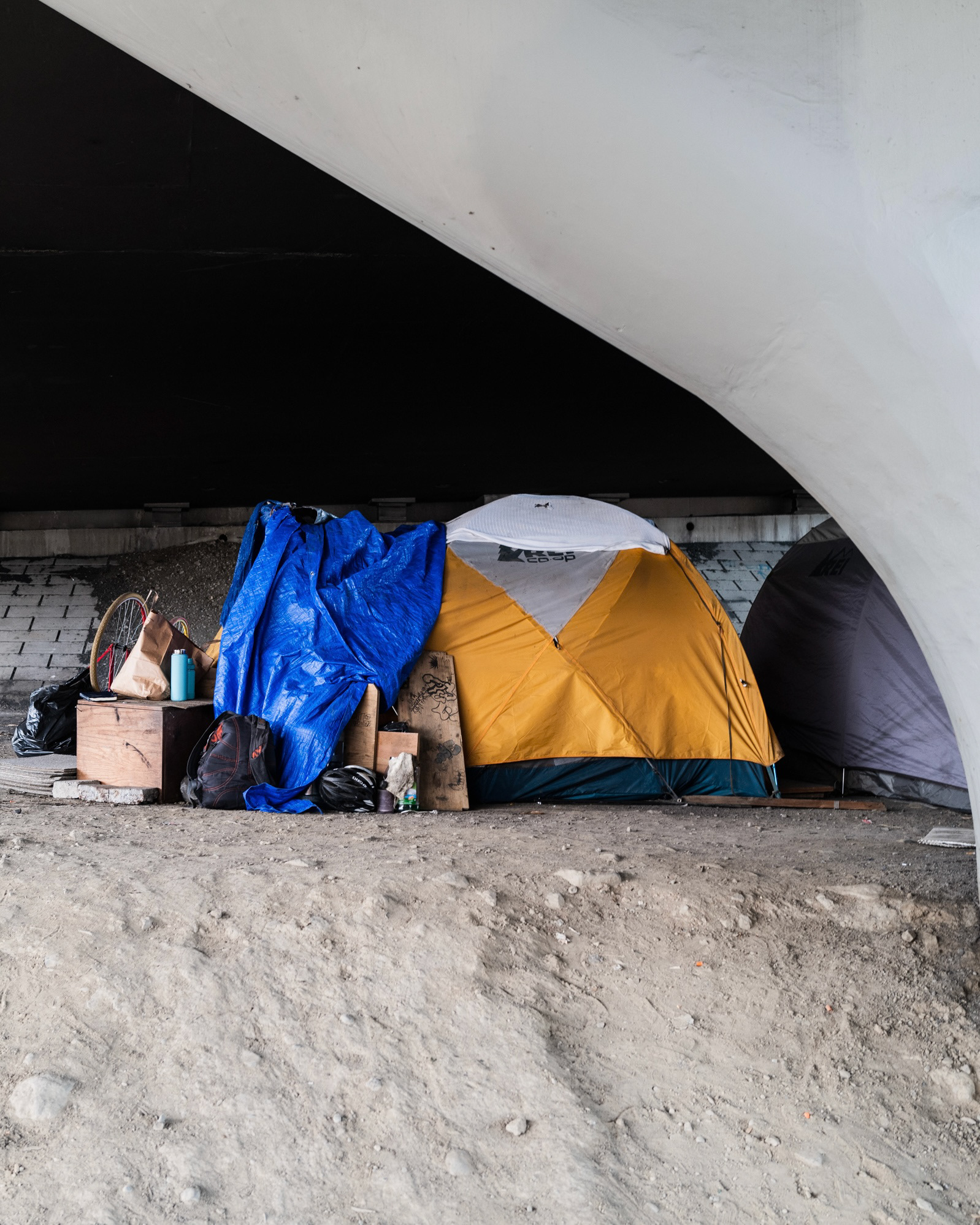
We learned the city of Portland made a promise of sheltering every homeless individual, but couldn’t make this a reality. More people came in from other states, and people still ended up being sent away at the door of overflowing shelters.
Just as we arrived in Portland, Mayor Ted Wheeler introduced a plan that addresses Portland's ongoing homeless and housing crisis, banning unsanctioned camping across the city, and making it illegal and fineable to set up a tent. The city plans to open three large regulated, sanctioned camping sites, and provide easier access to mental health and substance abuse recovery services and more safe spaces for homeless people to stay.
But what does this really mean?
But what does this really mean?
Greater Good Northwest
Eboni Brown, director of Greater Good Northwest, contacted us in 2019 through Instagram. At the time, we weren’t yet able to deliver Shelterbags to Portland. But a few years later we can finally get this partnership off the ground.
Greater Good, a non-profit born in the middle of the pandemic, prioritizes presently and historically underserved communities, so people of color, black individuals, indigenous individuals, LGBTQIA+, and formerly incarcerated individuals. All these communities have the least amount of services nationwide when it comes to housing support services.
Eboni transformed an old motel into an alternative shelter in an area with very limited resources. It is a non-congregate shelter, meaning everybody has their own room, with a door to lock. Here, Greater Good runs a transitional program, providing case management to navigate people into housing and make sure that they are able to keep that housing. “We are there to support them through that transition back into housing.”
Greater Good also strives to change the way houseless participants are served in their community. Developing and maintaining meaningful relationships with the population they serve, allows their team to act as mediators and connectors between participants and a variety of houseless services in the area.
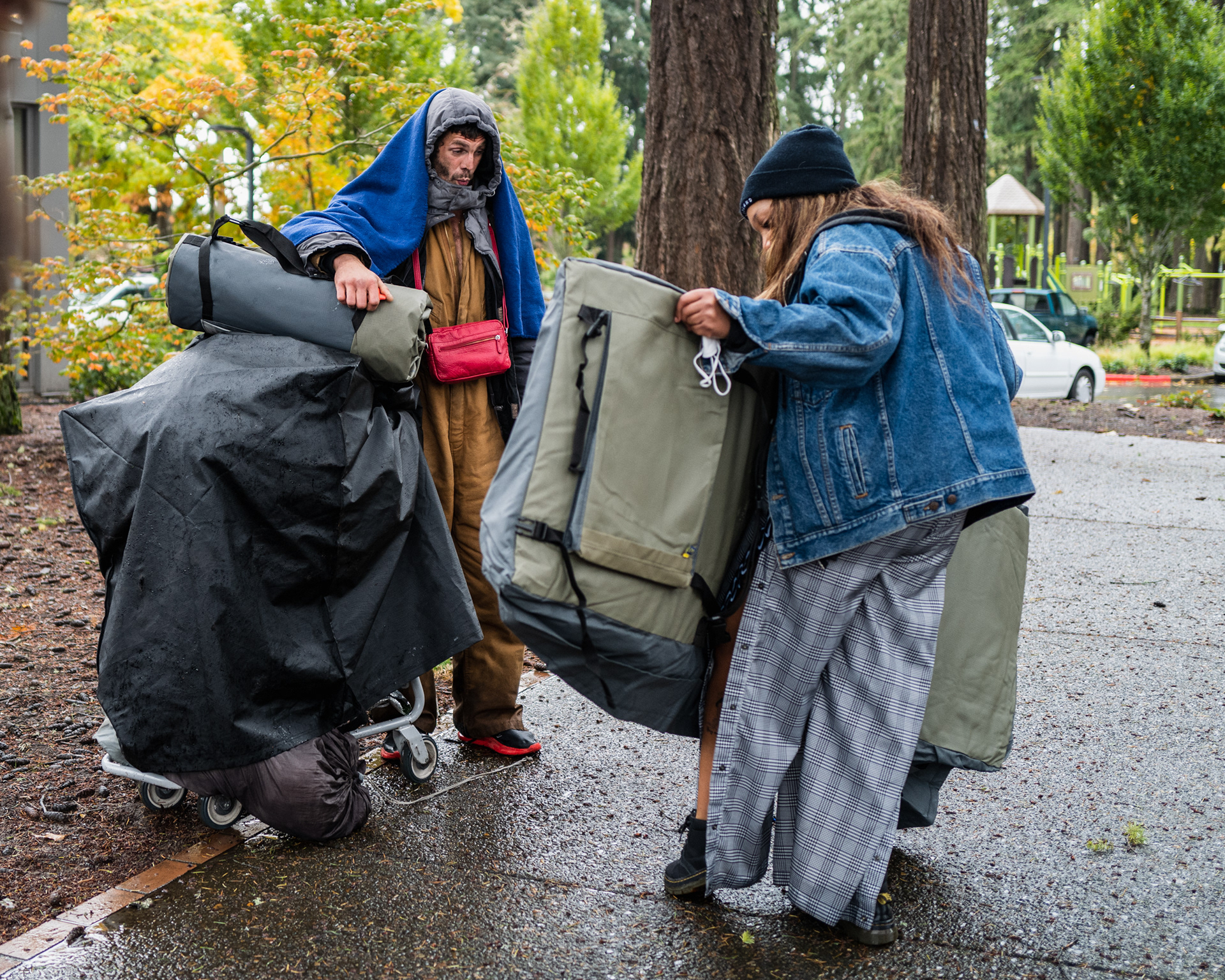
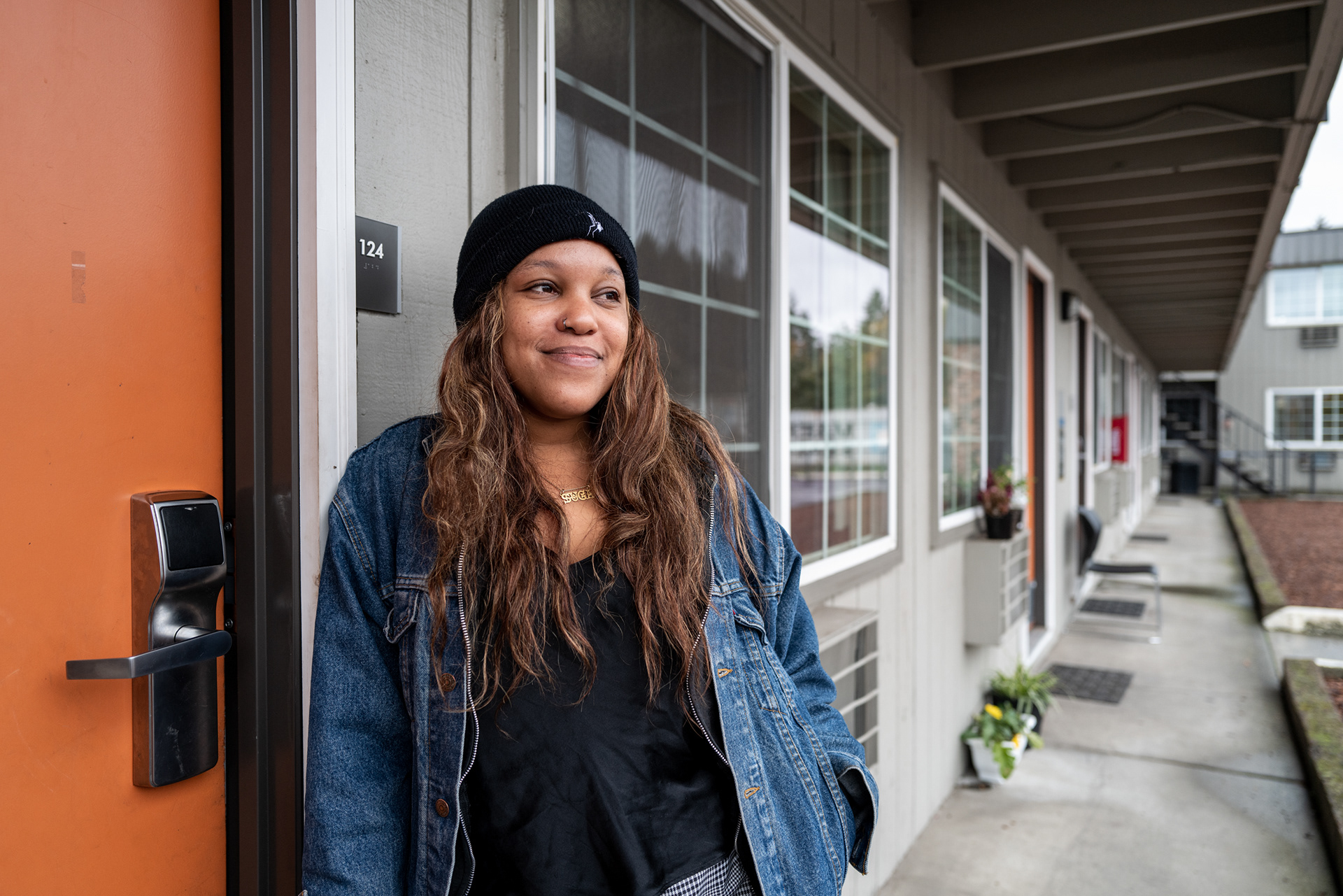
The community realized our value
While the census for the shelters had been cut in half to help with the spread of covid, and all the services were closed down, Greater Good started as a mobile team, bringing out food to even the deep woods because nothing else was open. “Nobody wanted this place in their neighborhood,” Eboni says. “We were being yelled at and everybody wanted this place shut down. That’s the issue in communities all over. People would rather have these folks sleep on the sidewalk than have a shelter in their neighborhood. And this makes no sense. A true community should not be fighting over resources. You’re not competing, you’re sharing. We had to do a lot of community engagement in order to all co-exist here. Now, multiple people in this community depend on us for clothing, food, and services. So yes, there was a lot of pushback. But once people realized our value, it very much changed to positive. They know they can call us when they see someone in need, and someone will show up to help.”